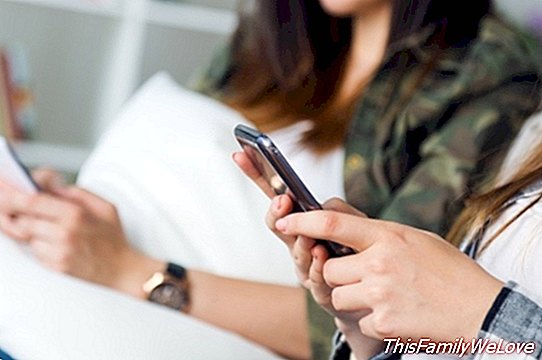Most young people recognize that they use the internet excessively

The new technologys have become almost essential in our daily lives, but perhaps too much: there are more and more cases of people who are hooked on mobile phones or social networks. Without going further, 65.2% of young Spaniards confess that they make "excessive" use of the Internet, and 51.9% of social networks.
This has been warned by a study prepared by the Queen Sofia Center of the Help Against Drug Addiction Foundation (FAD) that has focused on analyzing the vision that young people have on the New Information and Communication Technologies (ICT).
Another worrying fact observed in this survey is that the majority of young people (56%) between the ages of 16 and 20 ensure that Internet harassment is more frequent than is commonly believed.
Internet use in young people
Asked about their use of the Internet, it is striking that 13.8% of young people say they use a "clearly excessive" time in social networks, and 38.1% "somewhat excessive". Moreover, almost 8% of young people confess that "very often" they have the feeling that they are developing dependence on the Internet and social networks.
This, although negative, has something good: the reaction of the young people themselves who are hooked on technology and they want to "disengage": 13.8% of young people say that "many times" they feel the need to "disconnect" because they are "saturated" with this constant connection.
This vision does not have all young people: among those who have the feeling of dependence, only 7.1% believes that "depends too much" on the Internet and social networks. In addition, 46.4% say they use "fair time" or "something scarce" in these tools, while 52.2% say they have felt "rarely", "never" or "almost never" .
The dangers of the Internet
All this highlights, again, the need to educate young people so they can face the dangers and risks of the Internet at all ages. According to those responsible for the FAD, the majority of young people are aware of these risks, but they use social networks a lot because they accept risks as a "counterpart" to the many advantages.
According to this work, the majority (56.2%) of young people believe that risks such asl harassment of minors or between peers of the same age "They are much more frequent than you think", but there is still a significant percentage (16.3%) of young people who say that they "are exaggerated".
At this point, most young people focus on whats risks that occur in social networks between equals (bullying, etc.), but not in the risks of over-age abuse of minors (grooming, for example).
On this, it is interesting to note that, in general, the results show that women are more critical with the use they make of these tools. They point more harshly to the risks and dangers of the Internet and, in addition, are more "skeptical" with the advantages or benefits they provide.
Among the disadvantages that young people identify in social networks highlights the fact that people are controlled, it makes it easier to lie about oneself, it causes relationships to settle down and they are more lazy, they make relationships more impersonal and, at the same time, they suppose a loss of intimacy.
On the other hand, advantages include the fact that it allows greater ease of communication between people, they help to link, they facilitate opportunities of leisure and free time and they facilitate labor opportunities.
Angela R. Bonachera




